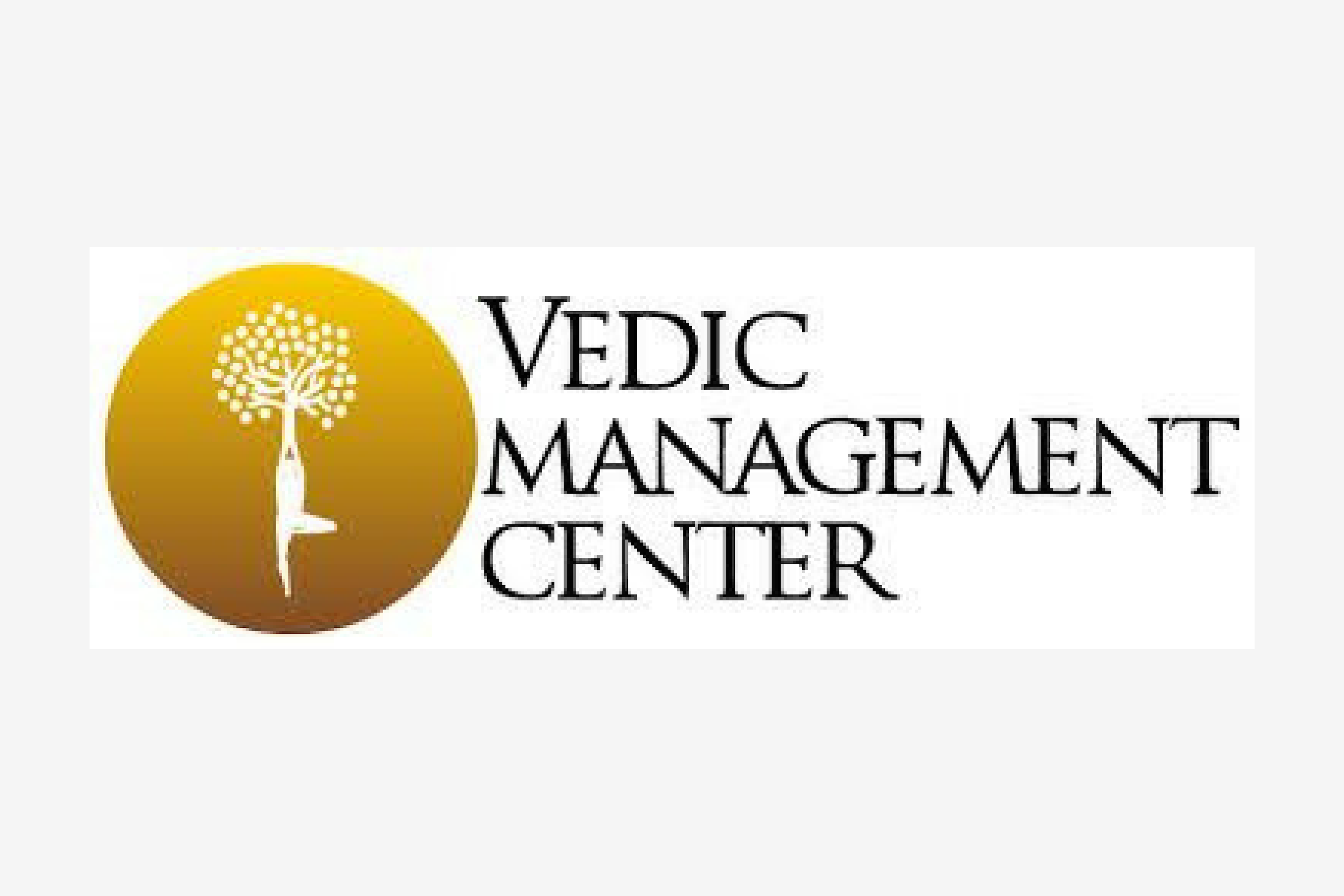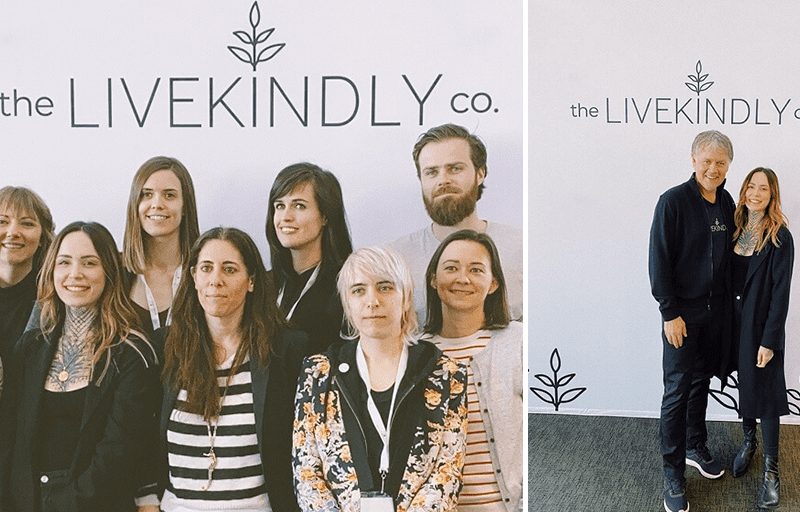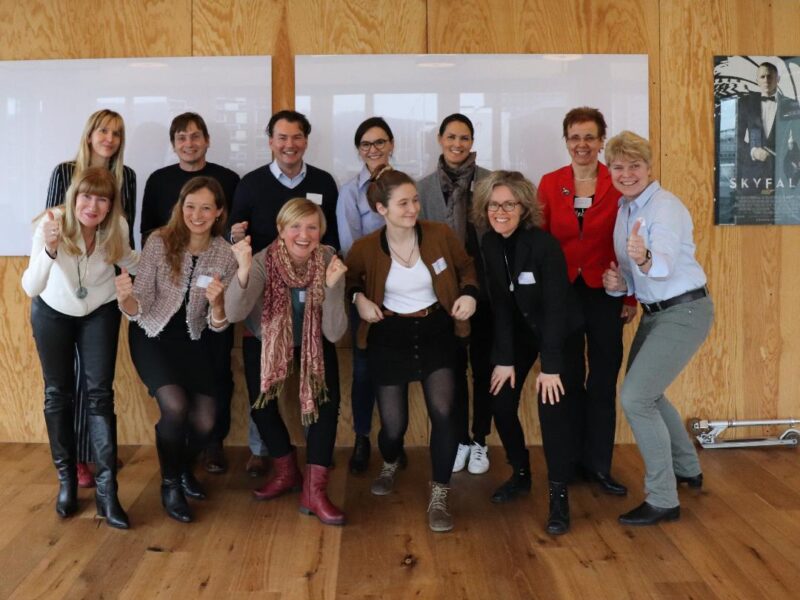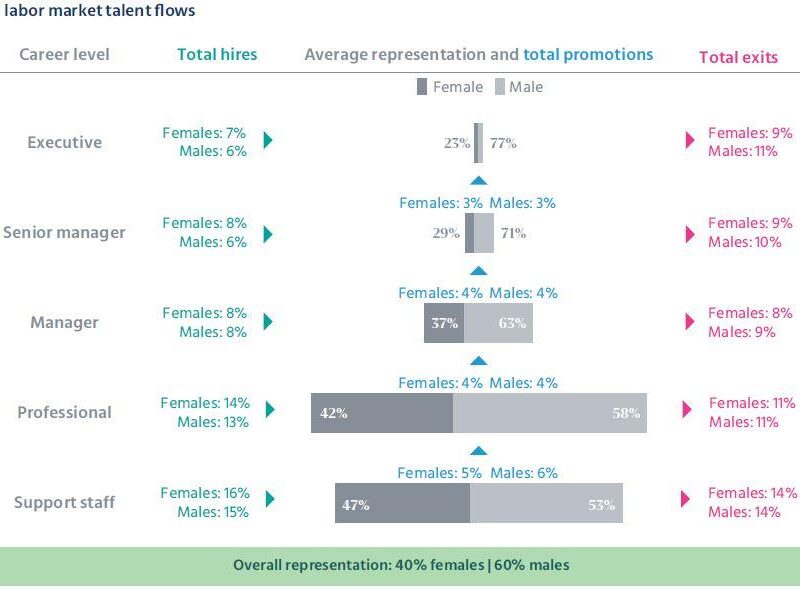
Dr Frawley speaks about his work and vision for Vedic Management
Vedic Management is all about bringing productivity, profitability as well as sustainability to individuals unto institutions: Dr David Frawley
Dr David Frawley a.k.a. Vamadeva Shastri is a world-renowned author, thinker, speaker as well as visionary in the field of Yoga & Ayurveda. Born in USA he spent a great many years of his life travelling across the length and breadth of Indian subcontinent with a focus on reviving, rekindling as well as propagating thousands of year old Indian heritage which he believes to be Vedic. He’s written over 40 books which have been translated into over 20 languages globally. Recognizing his monumental contribution to its ancient heritage Government of India in 2015 conferred one of its top civilian honors – Padma Bhushan. Being American citizen, the honor is extremely rare; interesting to note that he received the honor along with Bill & Melinda Gates.
In 2015, at the age of 65, when most people choose to dwell in the past and rest on their laurels Dr Frawley along with his friend and colleague, U. Mahesh Prabhu, started Vedic Management Center (www.vedic-management.com). The intent of the organization, according to its website, is to “…to bring radical, sustainable as well as ethical practices to our clients, students and mentees in a way as to work efficiently about all prevailing legal, ethical and professional norms.”
In this exclusive interview to Swiss Entrepreneurs Magazine’s Angelyne Larcher – Dr Frawley shares his ideas and vision with Vedic Management Centre.
Angelyne Larcher (AL): Dr Frawley, thank you for taking your time for this interview. You are a very intriguing personality. You are an American citizen yet your work and life – it seems – to have spent more in India and in studying and propagating the teaching of its ancestors. What got you closer to Indian subjects like Yoga & Ayurveda?
David Frawley (DF): Thanks for the interview and the kind questions. I am very happy to have a discussion with you. I have been studying, writing, translating, practicing and teaching in the Yoga and Vedic field for over fifty years. This began with the Yoga movements of the sixties and seventies in America, but I soon gravitated towards more philosophical Indian teachers like Sri Aurobindo and Ramana Maharshi. This led me to learn Sanskrit, study the Vedas, and travel and study in India with many great teachers in the Vedic field.
Seeing the lack of this deeper knowledge in the West, it encouraged me to write and teach as well as work with and help establish various Vedic schools, including with such colleagues as Dr. Vasant Lad and Deepak Chopra. I also began promoting Vedic knowledge in India where the voice of western Vedic teachers is sometimes a matter of more interest to the people. Vedic education has been sidelined in India too and needs a revival, which is now going on in a major way.
AL: What exactly is Vedic Management as a subject? Why did you start Vedic Management Center?
DF: Vedic management is a comprehensive system of life-management, right living, creativity development and higher awareness according to Vedic knowledge and Vedic values. This includes principles of Dharma or good conduct and understanding the law of causation or Karma. Vedic management shows us how to take this Vedic and yogic wisdom and apply it on a practical level in both our personal and professional lives. There are several Vedic management groups in India working using Vedantic teachings to guide our lives. They are becoming an integral part of India’s booming economy. The rest of the world can also benefit from them but they need to be packaged and developed in the right manner for proper communication and understanding.
Having worked extensively with Yoga, Ayurveda, Vedanta, Vedic counseling and other Vedic fields of education, I saw the need for a Vedic approach to our lives extending to business and social levels. Vedic knowledge like Ayurveda has been oriented more on a therapeutic level, which is very helpful but does not cover the whole of life. There is also the need for Vedic knowledge in everyday living in the work field. This is not a matter of therapy but of life-enhancement and development of our individual potentials. It is something relevant to everyone and not just part of a treatment process. So, I discovered Vedic management as the next step of Vedic knowledge to complete the system. VMC embodies that Vedic vision of practical life-guidance and addresses groups and organizations as well as individuals. It is the fruit of a more extensive Vedic vision.
U Mahesh Prabhu, who has extensive experience in the management field, has helped me understand how Vedic wisdom can be brought into the management field and the business realm. Given our changing society and the uncertainty around vocation, with major changes in the work sphere and economic market, such Vedic management seems crucial for the future. As Veda means knowledge, it is inherent in any knowledge systems development. Yet Vedic knowledge is not just ordinary knowledge but transformative insight, which is what we all aspire to.
AL: Is Vedic Management contradicting the prevailing management methodologies? Or is it something that compliments them?
DF: Vedic management is not just another line or grand of modern management, but has a vision and methodology of its own. We could almost say that modern management could be regarded as a part of Vedic management if it is reoriented properly.
Vedic management begins with personal life management, starting with understanding our minds and thought patterns, and is not limited to career or business counseling. It has its own concepts, principles and applications that can be different than modern management teachings. It helps us understand and expand our own motivations and aspirations, which is necessary in any significant communication ventures.
In this new era of information-technology we need new models of communication, attention, awareness and consciousness development. Unless we can get people to give attention to what we are doing, then we cannot get them on board for whatever they are doing. Yet for this we must have our own power of attention and motivation that can attract and inspire others. Prevailing management neglects the consciousness factor and thinks mere information is enough, applied as a formula. Vedic management empowers information with consciousness and higher values. Vedic management can help modern management reach a higher and broader level of application.
AL: Your website suggests that Vedic Management as a subject entails self-management, relationship management, organizational management, politics and diplomacy. For what I understand that connect hasn’t been made possible yet. For example: Business Management students know little or nothing about politics and politicians know nothing about diplomacy. How do you connect these different streams of knowledge?
DF: The western mind likes to separate and compartmentalize things, but all life is connected and interrelated and must be worked with. More networks should be created than broken down as we know, so energy can flow. And our outer life is connected to what happens in our inner minds and what resides in our deeper consciousness. How we understand and present ourselves is the basis of all that we do outwardly and must be addressed first.
Management is management of people, information and resources, starting with people. The key to any work or communication depends upon our skills or lack of them at relationship, association and working with others. These rest upon our clarity of purpose and goal of life, which should be broad enough to include all these we wish to draw into our work and projects.
Managing information is not just advertising but the structure of a business. Information is an expression of a project or plan that has some value of its own, and must relate to people and making our lives better in terms of quality, not simply more convenient or comfortable. Our work is now becoming more in the information field than simply goods and services.
Resources are human, technological, and structural. Today businesses rest less upon a location or storefront and more on resources that reflect associations and information. It is not just a question of assembly line production but of drawing people into the sense of a greater community and purpose, which often implies selling or sharing life style, not just a single product.
Organizational management must consider larger forms of association and working with groups, resources at a collective level, and broader streams of information. This is true of both business networks and educational networks.
Diplomacy, though resting on geopolitical concerns, is the art of communication between organizations, which whether in business or in politics, has many similarities. Today all business is global or international to some degree, which implies a degree of diplomacy in working with different countries and cultures.
Politics, perhaps unfortunately, is inherent in all that we do at a collective level. People today speak of the politics in an office and how it affects them, often adversely. Yet politics literally refers to having coherent policies that are mutually agreed upon, which is essential in all ventures.
One must be aware of these diverse currents and know how to work with them in a practical manner. All these different streams of knowledge are simply about understanding ourselves, which allows us to understand others, learning appropriate skills in communication, rapport, proper definition of our roles and functions, and embracing the whole life in what we do, rather than trying to control it from a limited perspective of markets and quarterly profits.
Vedic knowledge always takes an integral approach to life, recognizing the different levels of our individual and social being and becoming and affording each its proper place in the harmony of the totality.
AL: Now that the west is reeling under severe social, economic as well as political crisis do you think Vedic Management has anything substantial to offer?
DF: The main crisis in the west right now relates to identity, and with-it motivation and a vision of the future. People today, particularly the young, don’t know who they are, what they want and where they are going. They are faced with a world that may be changing more rapidly than their job skills or communication abilities, where it is not impossible that robots or computers may tell them what to do or replace their work skills.
Socially speaking, the traditional family has broken down so much that it is being redefined if not discarded for other social units and forms of social bonding. Marriage and raising of children have become much more complicated and uncertain as to their results. Yet there are also more choices and options that can either give us new opportunities or make us more confused. Many people feel alone and lost in these suddenly changing currents.
There remains economic abundance for many people but also high expenses, more responsibilities, increased material desires, and a pursuit of brands over quality. People are working more, often out of their own homes or after work.
Politically there is a struggle between the new globalism and its vested interests, which are not necessarily for the good of all, and a revived nationalism that has challenges of its own and can narrowly look to the past.
Along with this is a changing, if not deteriorating natural environment, including new challenges in health, particularly at a psychological level, where dependency on drugs is increasing. Medicine itself is becoming in many ways a menace more than a boon for our well-being. We are feeling more like machines or chemicals than creatures of nature.
Relative to the business realm, prevailing management methodologies tend to miss the whole and go after some limited fix, method, analysis or standardization, much like how business is being franchised and standardized today as it goes global. Though such businesses may thrive in many different countries of the world, the actual variety of products for the consumer is getting reduced, often to brand names, and local arts, crafts and skills are getting reduced or specialized. Management aims at profit more than happiness, at getting the business to do well short term rather than making its employees feel they are doing something creative and meaningful in life.
The Vedic view is simple and forms a helpful alternative. We first need to honor nature, the environment and the organic structure of life which includes all natural and human ecosystems, starting with our own bodies, senses and minds. We should reintegrate nature and natural living into the work place, which should provide us vitality, not deplete us. Without proper energies of nature around us, our own minds will get agitated and eventually become unproductive and our nervous system will get depleted.
Our social and work activity cannot be simply for profit or pleasure but must reflect the pursuit of higher ideals of building a better society, which is not only more equitable but also more conscious, creative and refined. We need a new sense of community that is not simply a limited human group but the effort to embrace all life as a single family.
Economic factors are not simply meant for personal gain but to build an economy that is sustainable both for the natural environment and for human dignity. Vedic thought teaches us that there is within us a higher consciousness, a qualitative awareness and an ability find inner peace that doesn’t depend upon external circumstances. We need to use technology to free our inner creativity, not to suppress it or substitute for it, which is what the Vedic technology of consciousness provides. If our technology does not free our minds and hearts but addicts us to drugs, machines or entertainment, it may not be a force of real progress and higher intelligence in the world.
Political theory must embrace a globalism of consciousness, not simply of information, technology or markets. We must look beyond electoral compulsions to long term strategies for happiness and wellbeing that are not quantified but open us up to the infinite.
The Vedic view provides such deeper insights and motivations. Its aim through a yogic approach is to help us integrate all aspects of our individual being, body, prana, senses, mind and consciousness, with society overall and the natural world.
AL: As you know we’re magazine for entrepreneurs. How do you think Vedic Management can help entrepreneurs? Particularly those who are just starting up?
DF: The essence of any progress at individual or collective levels is to encourage originality, new ideas and entrepreneurship. This begins with developing original thinking. We cannot cut and paste our way to new inventions. We need to be able to contemplate and meditate, creating the time and space for new ideas to manifest. Most great inventions come from a silent and focused mind.
Vedic knowledge teaches us that the entire universe dwells within us. All the power and wisdom of the cosmos is ours to access, if we are receptive, humble and respectful. Once we have the confidence that the entire universe is within us then we can imagine, plan and invent many wonderful things beyond the old conditioned boundaries and habitual thinking of a physically based mind. There are special doorways to universal forces throughout nature and even in our own minds that we can learn to access. We must develop an awareness of our true Self that is universal, then innovation will be with our every thought. Vedic management provides us the individuality to see life with new eyes at every moment.
AL: Is Vedic Management connected with other stream of Vedic knowledge like Yoga & Ayurveda?
DF: Vedic knowledge systems are all connected. Veda is the way of knowledge and yoga, meaning integral application, is its way of practice. Veda means that we need some insight, direct perception and unmediated experience of life. Our minds and senses must be open to a higher truth, not just appearances. Yoga means that applying our knowledge should never be one sided but balanced, moderate and harmonious, like music.
Ayurveda is a system not only of individual but also of collective and social well-being. It is a behavioral and naturalistic system of medicine, not simply treatment oriented. It can be useful in the work place as well, with implications for collective as well as individual well-being.
AL: Stress is among the most lethal enemies of people in entrepreneurship. This has become a norm. People consider life without stress isn’t a life – at all! Do you agree with this? What are your views?
DF: You will notice that we perform best in life, particularly in sports, but also in creative endeavors when we wholeheartedly concentrate on the work and forget ourselves. When you are running a race, the thought that you are running doesn’t help you but weighs down the mind, affecting the body. Stress arises when we get too personally identified with the work rather than understanding what it is and allow it to follow its natural course.
You can have a life without inner stress, if you know how to manage your own mind. This requires first learning to observe not only what is happening externally but also the contents of our own minds.
Of course, there are many possible complications, because working with other people has its challenges, with mood changes and ego needs that everyone has. Rather than stress we need a determined focus in what we do. This is only possible when we are working for a higher cause.
AL: Governments around the world have been pushing hard on entrepreneurship yet nothing much is coming out. Do you think spirit of entrepreneurship will gain strong momentum?
DF: Governments want successful entrepreneurship but don’t always know how to develop it. They may think some business programs or advertising are enough, and are usually pursuing formulas to be applied en masse as if it could be franchised. They are thinking more about results than processes, more about where to go than how to get there.
The individual must be awakened first that is the key. You must understand your higher capacities. Government can help by providing forums and discussions, but must encourage freedom and new thinking. Information technology on the down side makes us all follow the same news, ideas and data. What we need to have is an inner insight to use that information in a transformative manner, which is to see the energies behind it or even beyond it. This requires a vision ahead of our technology, not behind it. Vedic knowledge is not limited to information technology but connects to a universal intelligence that can take our species forward on many levels.
Unless we foster the real individual, the real person, who is a conscious being, not simply a body or mind, innovation will not be easy to create, expect perhaps accidentally, not as a way of life, which is the real need.
AL: Most people I know hang up boots by the age of 60. They complain about lack of energy and enthusiasm to do anything much. On the contrary to convention standards you are a globe trotter you are around the world travelling giving lectures, meeting people and inspiring people. What is the secret to your energy and relentless work?
DF: Retirement overall is disappearing in the West. Some of that is economic necessity after the failure of retirement plans, other parts are of people living longer. In any case we should retire from outer stress, conflict and complications, but can also discover an inner insight and motivation to take us to another level of existence. I have found that the mind functions better with age and the body can also be kept fit. How many more years this can be continued is questionable perhaps, but we also use certain Ayurvedic and yogic secrets to promote both longevity and creativity.
In my case I have always worked independently, so there was no question of having to retire from a position or organization, or define my work accordingly. The energy mainly comes from an inner motivation and connection with spiritual forces. We are not limited to this body and mind if we learn how to look and live within. That is the Vedic vision.
AL: Swiss economy has mixed reviews around the world. Some people blame us for being reclusive; others praise us. You’ve seen capitalist as well as socialist setup. What is your view of Switzerland and how do you think of our scope in the world setup in days to come?
DF: Switzerland as a small country has done wise to preserve its skills, traditions and independence. You have your own identity that the world admires, which is not chauvinistic but which does protect itself. I think that may be a good model for the other countries of Europe. We cannot be all things to all people and multiculturalism should not mean that we have no characteristic culture of our own, only that we honor the best in all cultures, while developing our own cultural resources and refinement. True culture is organic and natural, like Switzerland’s connection to the Alps. Switzerland cannot be a maritime culture, a desert or a tropical culture. Its social, intellectual and spiritual culture should be developed in an expansive manner but not one that loses any sense of identity or locality. This is of course a difficult distinction to make. But if any country can, Switzerland can.
On a broader level, one need not say that everything European is great but it is important for Europe to preserve its own art, culture, literature, as well as to develop it in a broader global if not cosmic vision.
Switzerland has been a forum for global communication, which is essential, but also can provide vision and guidance. What is adopted in Switzerland is respected throughout the world.
Capitalism fails when it promotes greed and desire. Socialism fails when it makes the individual dependent upon the state for his or her wellbeing. What we need is a capitalistic like innovative drive but reflecting a deeper creativity, not mere personal commercial interests. Similarly, we need a socialist concern for our common wellbeing but one that arouses individual creativity and rewards it, not one that simply reduces everyone to an economic uniformity. The Vedic view is to honor the individual as a means of connecting to the universal. The true Self is not an isolating force but a power of integration. We need to work for the whole, recognizing it is part of ourselves.
In any case I am very happy and honored to have this discussion with you and the Swiss entrepreneurs community.





